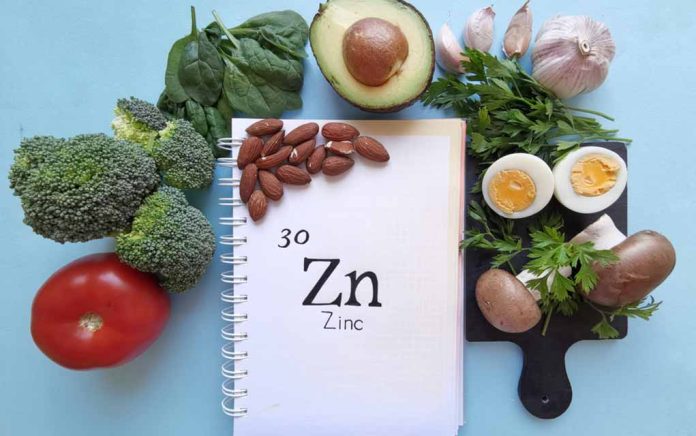
(HealthyResearch.com) – Our bodies need 16 different minerals to stay healthy and functioning properly, and they each have their own distinct roles. One of them, zinc, has gained popularity over the years for its immune-boosting properties during cold and flu season — but it does so much more than that. The body uses zinc in at least seven different ways. See why it’s so important and find out how to get enough of this essential mineral every day.
Why You Need It
Zinc is a trace mineral, which means the body doesn’t need much of it. Still, up to 20% of the population isn’t getting their daily allowance. And deficiencies can lead to some serious issues. Here are seven reasons why it’s important to get enough zinc every day:
- It protects against viral infections.It does this in two different ways. First, zinc has strong antiviral properties, which are able to fight HPV, herpes viruses, rhinoviruses and even coronaviruses in vitro. Second, it boosts immune function, making the body better equipped to fight infections.
- Zinc is necessary for enzyme functions. Zinc is vital for the formation and functioning of about 2000 different enzymes. Just about every type of building block in the body uses zinc in some way.
- It’s necessary for gastrointestinal health. Changes in immune functioning can lead to an unhealthy gut. According to the National Institutes of Health, zinc supplements may prevent and/or treat some forms of diarrhea.
- Zinc improves insulin sensitivity. Zinc supplements could help improve sugar metabolism, which may help some people avoid diabetes, obesity and metabolic syndrome.
- It helps regulate other minerals. The amount of zinc in the body can determine levels of 12 other essential minerals. This can lead to health problems caused by additional deficiencies. For example, low zinc can trigger low iron, which causes anemia.
- Zinc is essential for brain development. Zinc is necessary for proper brain development and nervous system functioning. Some evidence even suggests deficiencies during pregnancy may contribute to the development of autism spectrum disorder.
- It may improve physical performance. The body needs adequate amounts of this mineral to function at its best. Deficiencies can profoundly affect physical performance levels.
How to Get It
Most people who eat a well-balanced diet get enough zinc without the need for supplements. The best food sources include red meat, oysters and poultry, but moderate amounts can also be found in nuts, legumes and leavened whole grains. Vegetables contain far fewer amounts, but traces do exist in mushrooms, spinach, asparagus, okra, sweet corn and a handful of other choices.
Getting enough zinc is no problem for most healthy people who eat a balanced diet, but there are exceptions. Vegetarians and people with health issues that affect absorption may need to take supplements. With all this mineral does for the body, people of all age groups should be getting adequate amounts every day.
~Here’s to Your Health & Safety!
Copyright 2021, HealthyResearch.com
















